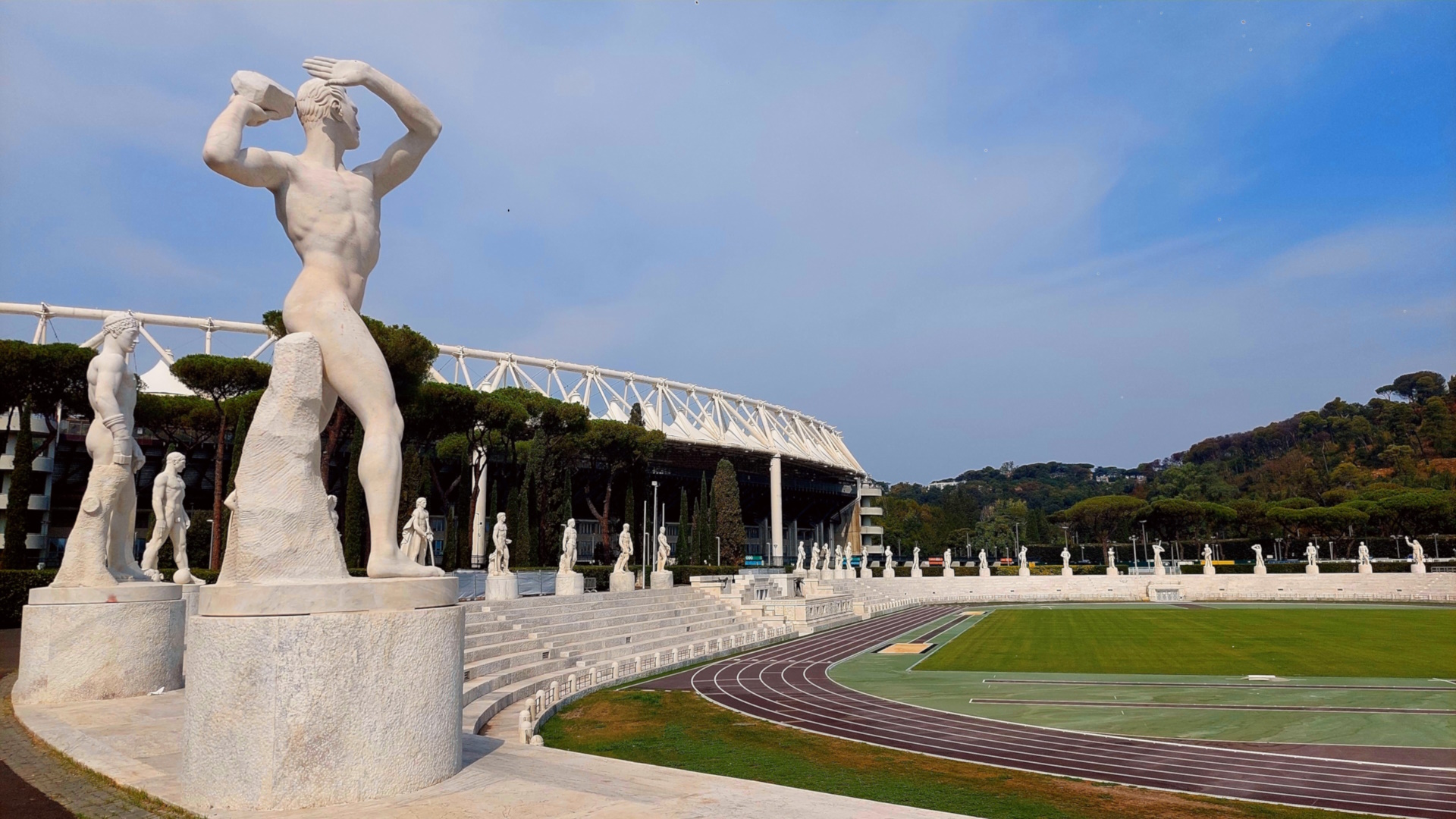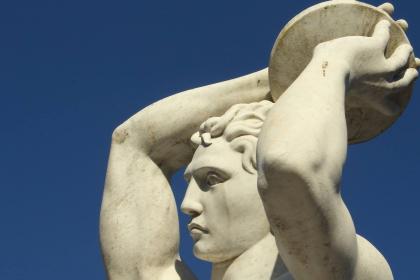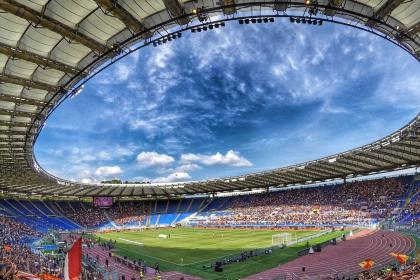
The whiteness of Carrara marble for a stunning view
A white Carrara marble stadium with a capacity of over 5,000 seats, framed by the deep green of the Monte Mario pines and with the bulk of the Foreign Ministry and the Olympic Stadium behind it. Inside, a splendid athletics track with free access, refurbished in view of the European Athletics Championships in June 2024 by restoring the original grey-turban coloring.
Rationalist architecture, between cult of the body and monumentalism
The stadium was designed by Enrico Del Debbio as a training ground for the Fascist Men’s Academy of Physical Education (now the headquarters of CONI). It was built between 1928 and 1932 along with the other facilities in the Foro Italico (then called the Foro Mussolini), hastily constructed with the hope of winning the 1944 Olympics (later cancelled due to the war). In its own way, the entire complex constituted a political manifesto: it emphasized the fascist regime’s focus on the education of the body, virility, and the exaltation of physical strength educated by discipline.
Statues and mosaics: the severe elegance of the decorative apparatus
Fascinating and scenic, the stadium is built according to classical canons and draws inspiration from ancient Rome and Greece. The track is completely underground: the elegant white marble perimeter tiers were obtained by raising the ground about 5 meters. Sixty imposing marble statues by some twenty different artists form the crowning glory: 4 meter high, they depict athletes engaged in various sports disciplines, representing the physical perfection propagated by Fascism. They were financed by 60 of the then 94 provinces of the Kingdom, whose names are engraved on the pedestal of the statue. The decorative apparatus is completed by four bronze statues by Aroldo Bellini, two on either side of the grandstand and the other two in the niches on either side of the track access ramp. The mosaic at the entrance, depicting eight athletics figures, is by Angelo Canevari.
Experiencing sport at its full potential
Since 2013, the stadium has been named after the Italian sprinter Pietro Mennea, the world record holder in the 200 metrers flat for 17 years, and is mainly used for competitions and events related to athletics. However, the facility is normally always open, and is a perfect destination for anyone wishing to spend a day of sport or relaxation in the open air.
Photo turismoroma
The Foro Italico Complex

 Condividi
Condividi
Sport for fans and spectators

How and where to see live sporting events
Open air sports and fitness

How and where to train body and mind in the second greenest capital of Europe
Stadio Olimpico

 Condividi
Condividi
Information
 Condividi
Condividi
Location
To find out about all accessibility services, visit the Rome accessible section.











































